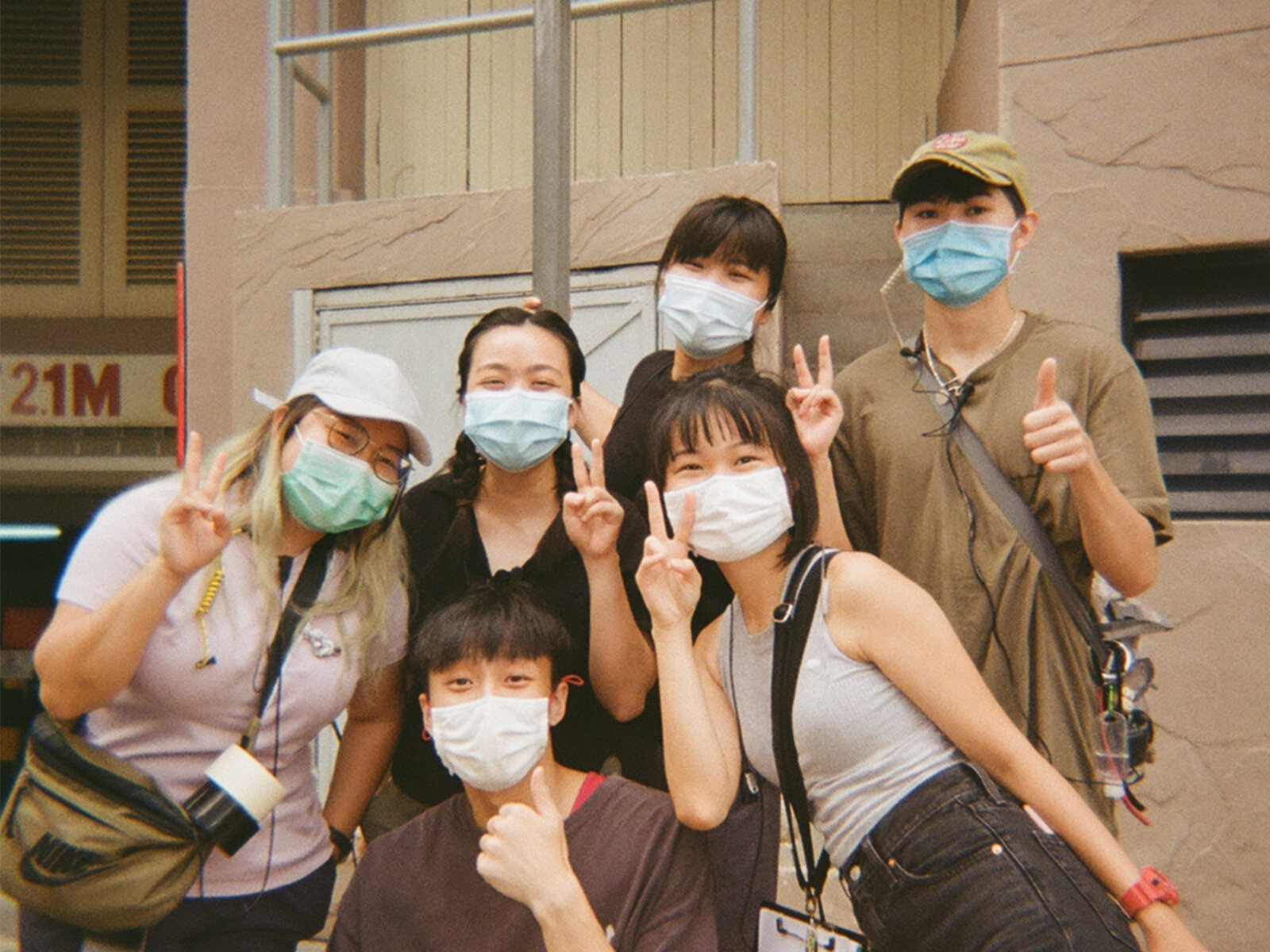Like many young people in Singapore, you were brought up by our education system. What did it feel like when the next phase of your life wasn’t predictable anymore?
After University, I was adamant about not doing a full time job. I wanted to be selfish for once because it was the one time I could literally do whatever I wanted (because I was privileged enough to).
I was so excited, the world was so big and I couldn’t wait to see what was going to happen. I was hungry and ambitious and curious. But life had its own plans for me - my batch mate and I had an idea to do a short film that turned into an anthology that then turned into a web series. We knew it was going to be good and the only company we trusted enough to produce the web series with offered both of us full time positions to bring it to life, so here I am.
I don’t blame anyone or anything and I don’t regret it. I wanted to tell a good story and that was the only way I knew we could.
Your first job out of school always seems like a venture into the wilderness, how did you navigate towards charting your own path?
I actually think it’s the opposite. I don’t think it felt very wild. It was scary for sure, but no it did not feel wild. Because that’s what people do right? After school, you work. And boy, did we work. I think when you are fuelled by your own purpose, the need to prove yourself, and to bring justice to a story - you kind of just push yourself. So I guess it was different from school in the sense that no one was there to grade us or tell us what to do next. We were pretty much left to our own devices to make One Take.
Quite simply, we were a bunch of fresh graduates given a platform to do whatever we wanted with. We were very lucky. And if someone hands you a microphone, gives you a crowd, you might as well say something good with it right?
Speaking about finding your way, social media seems like the last place you’d want to venture into given how noisy and negative it can be. What were you trying to accomplish with NSFTV?
Social media can get very noisy. That was one of the big things we considered while trying to decide what to do with the brand. We realised that despite the space being so crowded, it can be so easy to feel lonely. Why?
I think that became our premise. How can we make people feel less alone? The whole point of social media, glaring negatives and all, is just people trying desperately to connect, to be seen, to be heard. So it’s about creating a platform for just that.
So what has been the thought process behind the content that gets published on NSFTV?
It’s always been about making people feel seen, and creating conversations about issues not discussed enough. And doing it in a way that is engaging, exciting and interactive for social media. I can’t outline a clear definitive thought process, but there’s a sense of being reactive to the times.
The values we built One Take on translated into the values we wanted to have for the brand - we wanted to tell stories that weren’t authentically represented in media and we wanted to show that the boundaries of making moving visuals are endless.
“We are building a community of people passionate about change and authentic storytelling and I really think this is just the beginning.”
Just like your path into work and adulthood, NSFTV leans towards taking unconventional routes to discover purpose and a unique voice. But personally, what does NSFTV mean to you?
I mean, I’ve spent way too many sleepless nights on NSFTV so maybe it’s sunk cost fallacy that makes me so emotionally invested, haha! But I guess in a way, yes. What excites me about the work is that no other platform is doing what we are doing. I think about the younger version of me and the types of content that was available to me at that point in time - the stories that were being told, the type of people that were on screen and how I didn’t recognise those stories or those people in my own reality.
And now, when I read comments or messages about how our young audiences feel seen and heard, it’s a very special feeling.
How are you, and by extension, NSFTV, planning to grow and develop with your audience and fans?
When we were designing this website, I wanted a page dedicated to the viewers - just to say thank you.
For every work we put out, it’s a piece of the creative team’s heart asking, “do you feel this way too?” So when people respond with the most heartfelt words - be it privately or publicly, it makes us feel seen and heard and we want to keep doing the same for our viewers.
This interview was edited for brevity and clarity.



